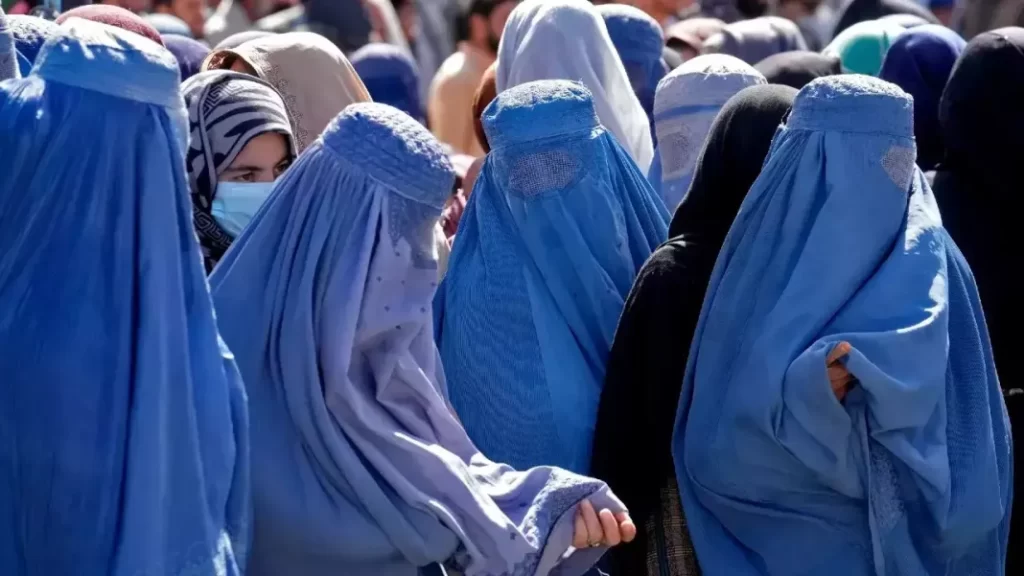The feeling of being silenced, hidden from sight as you are increasingly desperate for you don’t know what else to do. Millions of Afghan woman languish on the last cusp as restriction after restriction is being forced down their throats by those who had climbed the ladder of power with promises of change, peace and prosperity. Human rights languish on their knees in Afghanistan, a land that has finally begun to step out of the shadows of war and devastation.
This Tuesday, the UN rights chief highlighted the ongoing instances of extrajudicial killings, torture, ill-treatment, arbitrary arrests and detentions, as reflected by new data collected from the ground. As he implored the other nations to open their eyes to “devastating” precedents, he emphasized the most worrisome aspect of all: a general sense of impunity enjoyed by those committing human rights. In the Taliban-led Afghanistan, there appears no functional justice for those who very smugly strip women and young girls of their internationally agreed upon rights.
It has been over two years since the fall of Kabul. Taliban fighters are busy lording over the streets with weapons once owned by their enemies. But quite expectedly, they were quick to forget the noble pledges they had taken as part of the Doha agreement to ensure this ascent to the hot seat. Meanwhile, no sanctions or menacing finger of the world has been enough for them to step out of their delusions about a gender-segregated society.
Afghanistan is the only country in the world where women and girls are denied access to secondary and higher education. As if not satiated by this enormous stumbling block, the Taliban wish to keep introducing reforms that would ensure a patriarchal society; one where women and girls have to suffer from a long list of misogynistic restrictions. Women are being confined to the four walls of their homes. First, came the restrictions against their rights to livelihood. Then, the authorities forced closures of civil society organizations and government offices with a mandate to promote or uphold human rights. The proverbial last nail in the coffin came in the form of banning expression, movement and visibility in the public domain.
In a country where women had just started to shine through the decades-old darkness with a might to stand for themselves and their sisterhood, the new command forbids them to even make their presence felt. One step out of the line and violent, public punishments would follow. The floggings are backs and so is the threat to get stoned to death. To put its point across, the Taliban’s leadership, which is entirely comprised of men, does not seem interested in opening any doors for its women, let alone allowing them to participate in governance at any level or hold any senior positions in the civil service, including as judges. Authorities frequently enforce rules prohibiting women from traveling or leaving their homes, including when they need to go to the workplace, without a male family member accompanying them—an impossible requirement for almost all families.
While new and frequent impositions succeed in pushing the fundamental rights of women and girls to the fringes, all international society can do is wave the sanction banner and hope for sanity to prevail. Many governments around the world have been rightly condemning Taliban crimes. But this is not enough. Afghan women face an increasing sense of despair as they wonder how many times would they have to yell and scream: look at us, we are dying. If any change is to come, the world would have to put its money where the mouth is–and for a period longer than one news cycle.
Afghanistan thrives as a graveyard for women’s dreams. Still, one thing is certain: no administration–however delusional– can forever close its eyes to the fact that any prospect of a stable, prosperous Afghanistan rests on the participation of both its men and its women. Denying women and girls’ rights to participate in daily and public life not only denies them their human rights, it denies Afghanistan the benefit of the contributions they have to offer.


